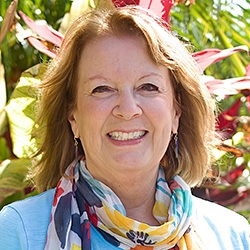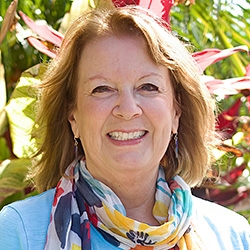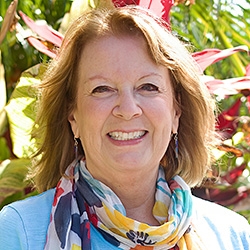
Search Results: creativity
-
In learning how to re-invent the economic system so that it distributes resources in a way that includes as many people's needs as possible, we would need to be in a process of mutual influence with one another. However, addressing resource distribution can be complex when people in different social locations have 1.)a different sense of what's considered "enough" 2.) different capacities to find creative strategies that work within the given limitations, and 3.)different levels of self-doubt, shame and capacity to put their concerns and needs on the table. Can we collectively create conditions that support people to stretch productively so that included in the outcome are the needs, perspectives, ideas, and concerns of people who are less powerful? What needs to be in place to support the way towards a better future?
-
Trainer Tip: The very process of giving someone space to talk about their issue without our judgment, to be truly understood by us, and to be deeply heard is very healing, enough so that most people will organically find their own creative ways to resolve their issues. Rely on this process and you will lose all desire to fix people’s problems. Try this out today.
-
The less blame and criticism, the easier it is for others to hear us. From this perspective, it’s in our best interest to come from curiosity and care. This way differences can bring us together and help us know one another. The more mutual understanding, the easier it is to work together and find creative solutions. Read on for more on this, with a story about how a black man inspired 200 members of the KKK to leave the organization.
-
Join CNVC Certified Trainer Jerry Koch-Gonzalez, Greg Rouillard and Certified Dynamic Governance (Sociocracy) Consultant John Buck for this six-session course recording to learn how to transform your method of meeting facilitation. Many NVC organizations have begun using sociocratic tools, including circle meetings and decision making by consent, with satisfying results.
-
- Cultivate thriving interpersonal relationships
- Discover paths to move beyond anger, blame, and judgment
- Connect with the Divine essence in other people
- Experience greater ease and joy in all your interactions
-
Avoiding conflict is an even greater issue than having conflict. Not being as competent at conflict we avoid it. And in many cases that creates more conflict. Conflict is inevitable because we have different perspectives. Conflict is not bad. It is an opportunity for increased connection, intimacy, joy, and creative win-win solutions. Instead of avoiding conflict, we can work on increasing our skill in handling conflict.
-
Trainer Tip: When there is conflict, the chances are good that people are arguing over a particular strategy. When we focus on our needs, the opportunities for peaceful resolution that values everyone’s needs are much greater. This can also build trust. Be aware of opportunities to shift focus from strategies to needs. Read on for an example of how this can work.
-
We can use anger as an important signal to let us know that we perceive a threat to a universal need or value, directing our attention to something so that we can take effective action, and avoid harmful thought patterns. For example, instead of dwelling on a "should," focus on addressing unmet needs through boundaries and effective communication.
-
Have you ever had the experience of being truly heard and understood by another person? Or felt the astounding, breath-taking connection that arises when someone sheds all preconceived notions, gives you their full presence, and really sees you?
We call this The Amazing Power of Empathy – and the power does not stop there.
- Cultivate thriving interpersonal relationships
- Discover paths to move beyond anger, blame, and judgment
- Connect with the Divine essence in other people
- Experience greater ease and joy in all your interactions
-
Welcome to June. It’s the beginning of summer in my area of the world and I usually find myself moving at a slower pace; spending more time outdoors and with friends, more time reading and gardening. I really enjoy the beginning of summer especially because the sun brings just enough heat to feel good, but not so hot to be uncomfortable.
-
-
Join Roxy Manning for a provocative fishbowl discussion about how privilege and lack of privilege affect people of color.
-
Join Dian Killian and Mary Mackenzie for a provocative fishbowl discussion about how privilege and lack of privilege affect women.
-
Join Alan Seid for a provocative fishbowl discussion about how privilege and lack of privilege affect men.
-
Join Jeff Brown for a provocative fishbowl discussion about how privilege and lack of privilege white people.
-
Our "felt-sense" can provide crucial information about our experience and our lives. It can also help us integrate and retain information. This can also bring greater access to internal resources, choice, open heartedness, collaboration and creative solutions. From there, profound insight and transformation can follow. Here's how we can harness that...
-
There are three things you can do to sort inner conflict and make doable, sustainable agreements with yourself. This capacity can build trust with yourself to follow through, and to develop diverse and creative solutions -- thereby increasing confidence and ease.
-
It may be challenging to hear or make requests when you feel shame regarding anyone's feelings and needs. Without support, shame could be debilitating, so you may feel resistant and become defensive, hear threat, or criticize others. Instead, be with people who allow space for vulnerability. Find ways to celebrate, negotiate, be mindful, accepting, and creative.

















